All photos provided by and with consent of the participants, either via Facebook, Twitter, or email.
I was traveling for my sister’s wedding when the American Health Care Act passed the House. My family had half-avoided politics for a few days to keep our focus on the happier occasion at hand — though I still knew enough to suspect that 217-to-213 result was coming. So when it finally became real, I didn’t crumble like I did on election night; I absorbed the headline with the steely resolve of someone who already knows they’re getting bad news. It landed with a dull thud rather than a gut punch. But the internal calculations began, all the same.
Here’s the raw data on me:
I am a 28-year-old white, cisgender, college-educated gay woman with cerebral palsy. I’ve had three major surgeries in my life, with an emergency spinal fusion at age 18 being the most recent. I have been in and out of physical therapy since childhood, and the results make a pretty strong case for “early intervention.” I wear ankle-foot orthoses on both feet. I exercise somewhat frequently and drink in moderation. I don’t smoke or use drugs recreationally. I am not currently taking any prescription medication. I have never been pregnant. I am not married. I am extremely nearsighted and have three cavities in my teeth. I see a therapist once a week.
I am a lifelong Californian. I receive health insurance coverage through my main employer; prior to that, I was enrolled in my state’s Affordable Care Act exchange, which picked me up at 26. I received income-based subsidies during my first year of enrollment, but not in any subsequent years. I pay for dental and vision coverage out of pocket. I hold multiple freelance jobs in addition to my day job. I live in a major urban area with 18 Congressional districts. I have voted in every election in which I’ve been eligible.
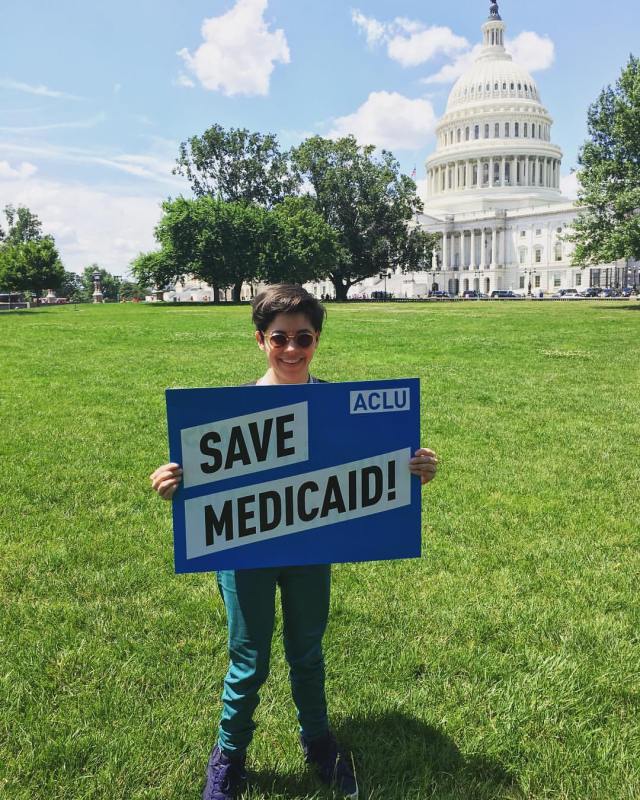
Went to a rally at the Capitol last week, it’s fine
What happens when you run all that through the equation of the House bill? On the surface, crisis averted — I can’t be denied coverage outright because of cerebral palsy. But I could end up paying a lot more for it. See what they did there? As long as the AHCA makes sure some coverage is technically available, its backers can insist I “won’t lose my insurance due to a preexisting condition.” Whether or not I can actually afford that coverage isn’t their concern. Plus, the AHCA does away with the employer mandate, meaning that my job won’t have to provide health insurance anymore — and putting me at the collective mercy of our HR and Finance departments and the state of California. I’m fine now, but it’s like a Jenga tower; move one block, and who knows what will stay standing. That’s life for someone in pretty damn good circumstances under Trumpcare.
There’s a lot of confusion around where the AHCA stands — one day it’s on the brink of collapse, the next it’s imminent. That’s the speed of current politics, thanks in part to a Republican Congress eager to ram earth-shaking legislation through at any cost. So even if you haven’t been keeping up with every twist and turn of this fight, you need to remember just who the 23 million people who would lose their health insurance under the new plan really are. If the Senate won’t hold a hearing, we’ll bring their constituents to them.
Thirty-six more queer disabled folks are here to tell you about the impact of the AHCA, and what’d they say to any Senator (somehow) still weighing their vote.
Erika / 23 / San Francisco, CA / Digital Media & Communications Associate and Super Lesbian
I am still under my parents’ plan until I turn 26, but once I reach that point I have no idea what I’ll do. It’s almost laughable, if it weren’t so serious. I would hope that our Senators can vote for something their constituents want, instead of what those who funded them into office want.
Go get ‘em, Senate! Hasn’t passed yet! You can do this!
Niamh / 28 / Seattle, WA / Queer, disabled, nonbinary trans girl

I have severe hemophilia A and a slew of mental health meds that I need to take on a regular basis. I’m prone to severe swelling in my joints that causes long-term joint damage (I have arthritis in both ankles from it). Already, I have to worry about the positions I cuddle in or have sex in because I might end up with an elbow bleed the next day.
People are usually shocked to find out how much it costs to keep someone with severe hemophilia healthy. If I were to pay for just my hemophilia medication out-of-pocket, and I was “healthy,” it would cost about $360,000/year. With lifetime caps, that means I would max out on most private insurance policies within three years. As a result, I have been on state insurance basically my whole life. That way my medication is fully covered and I’ll have consistent coverage. But that limits how much I can actually do with my life. I couldn’t attend college out of state, couldn’t study abroad or travel for long periods of time, and the prospect of moving or getting a job out of state is so incredibly stressful (even with the Affordable Care Act) that it’s something I’ve never really tried to pursue. I then also have to jump through the bureaucratic hoops of maintaining my coverage.
“With lifetime caps, I would max out on most private insurance policies within three years.”
The current healthcare system gives me some looseness in being able to find private insurance that will cover my hemophilia medication. With the American Health Care Act, it’s like moving back a decade. I’m back to making sure I don’t work a high enough paying job so I can maintain health insurance. I’m too disabled to work, but I’m not legally disabled enough to not work. The AHCA would only exacerbate that.
Sandy / 29 / Boston, MA / Educator, community organizer, disability activist
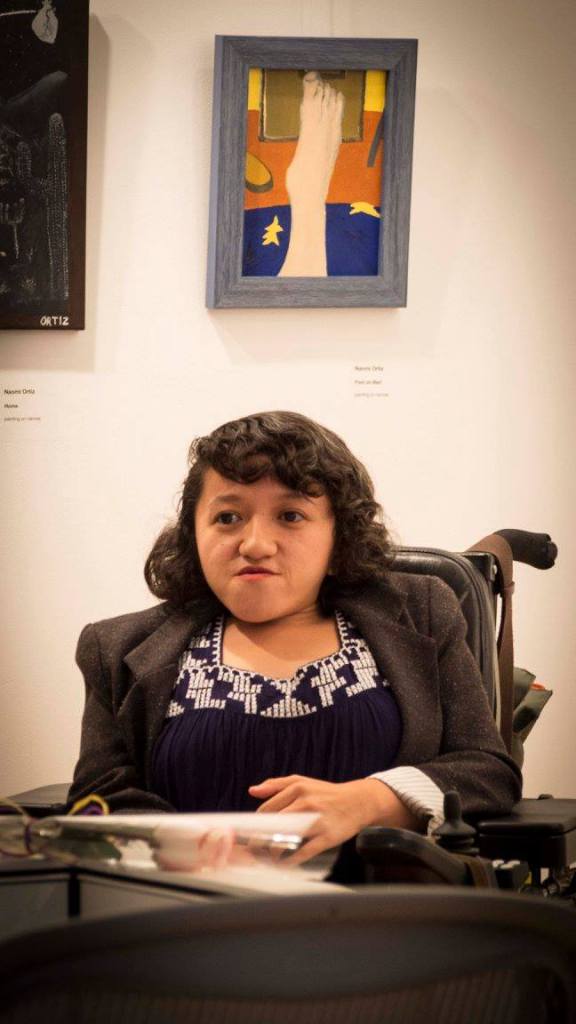
I’d first like to note that no matter which party holds political power in D.C., or how high my salary and education levels might be, and how “stabilized” my disability might be at any given time in my life, I know that I will never be able to afford to live as a disabled person out-of-pocket. Under the AHCA I would not have access to Personal Care Attendant services, my ability to afford specialist care would be non-existent, and seeing a therapist for my mental health would not be an option. Other medical care such as affording medications, surgeries, hearing tests, bone density scans, and a functioning wheelchair would be challenging to afford, if not impossible. I could already foresee myself making future decisions on whether or not to forego one medical treatment over the other as I’d try to calculate “when would I hit that lifetime cap?”
The concept of health insurance is not that we buy into it because we know when we will need it and why. Just as no one can predict when they will become disabled (because the question isn’t if, since everyone will), the idea that if only we would all “take better care of ourselves, and live better lives” is beyond repugnant. Living under this insurance would mean my disability would dictate my lifestyle, as opposed to now, when the will of my personhood has autonomy and independence over the direction of my lifestyle. Yes, my education, my job, my friends, and the city in which I live have a lot to do with my current lifestyle. But I would be lying to myself if I didn’t also recognize that my health insurance has played the biggest role in shaping my livelihood to date.
To those legislators, I urge you to vote against the AHCA. I would also like you to re-evaluate who elected you to public office, and ask yourself who is missing from that public. In the event that you need reminding: people must be at the central focus of this vote. And among them, the millions of disabled Americans. Should you vote for the AHCA, I must tell you that the consequences will far outlast your political term – my generation and generations of disabled people will not forgive.
Anna / 23 / Gainsville, FL / Actor and grad student

I could not only be denied coverage, but could end up paying $5000 per year out of pocket for the prescription meds I need to stay alive. That is currently a quarter of my yearly salary, and I cannot afford it. It also makes it more difficult for me to then seek specialty care.
I would ask any senator still debating this whether they realize that good health is primarily a matter of luck. I have a genetic predisposition toward my illnesses, and I cannot control whether I have them. I would tell them not to deny us coverage because we are PEOPLE and we deserve to live.
Al / Chicago, IL / Chronically ill and progressively disabled lesbian/communications pro

I have a very high stress job, and I am financially supporting myself and partially supporting my partner. I also have hefty student loan repayments and crushing medical debt. I will eventually become financially responsible for my mother who is blind and otherwise incapable of supporting herself.
As my disability progresses, I’m looking at eventually losing my job, and therefore my insurance. It’s a terrifying idea because I have no safety net and with the number of preexisting conditions I have, I will certainly not be aided by the government.
“What could make these people in control of our government see the value in my life? What is enough?”
The thing I find so difficult about the “debate” of voting for the AHCA is that there is no good argument.
My life should not be valued based on how much I work — but I work 90 hours a week.
My life should not be valued based on how much I can do — which is becoming less and less.
I did not cause my illness — but it shouldn’t matter even if I had.
I am not an investment waiting to be returned upon — though I’m paying my dues.
What could make these people in control of our government see the value in my life? What is enough?
Clare / 18 / Parker, CO / Member of The Resistance
Unless the protection that allows people to stay on their parents’ insurance until age 26 stays, I would be at risk of having no insurance anymore and losing all my specialists, access to medications, and treatment. If I am denied healthcare because of my degenerative illnesses (either when I am 26 or if my mom must change jobs or loses her job before then), I have no Idea what I would do.
Hopefully soon I will start receiving SSI; then I will have at least a very small amount of income. I don’t know if it would be able to cover rent for a small apartment in my state, much less $4,000-6,000 of out of pocket medical costs every year (that’s with actually good insurance). I know I’ll probably never be financially independent; the burden of increased costs would lie of me and my family, and not being able to get healthcare will effectively limit my quality of life. People think they should get to add to their profits instead of allowing me some semblance of a life.
The AHCA is not a healthcare act. It is an undeserved tax break at the expense of sick, poor, and older people’s lives. I’m one of them. The AHCA is regress, not progress. Read the actual bill and have a heart.
Danielle / 33 / St. Louis, MO / Civil rights activist, writer, and public speaker
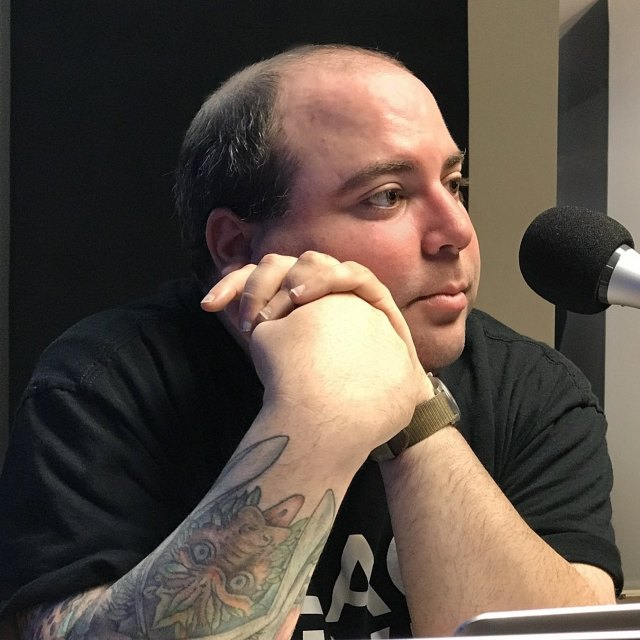
Photo by Kevin Harvell
I am struggling with housing and food right now even though I have the cheapest ACA plan available. I have a heart condition requiring surgery ASAP, I have just started transitioning, and I have chronic pain. Before I got an ACA plan, I had suicidal depression from chronic pain and gender dysphoria. It is pretty likely that I will die either from heart problems or from suicide if I lose my insurance and go back to being homeless.
“A vote for the AHCA is a vote for the death of millions of Americans. There is no debate.”
There are millions of people like me who depend on the ACA to survive or have anything even close to resembling a healthy, productive life. A vote for the AHCA is a vote for the death of millions of Americans. There is no debate.
Alexx / 22 / Long Beach, CA / Student

When my insurance through my mother’s work is no longer available to me I will be unable to afford the medications needed for managing my chronic pain, I will be unable to afford my psych meds or my EpiPen for my tree nut allergy, and I will be unable to continue therapy for my psych issues or my hormone replacement therapy.
You are going to kill me if you vote the AHCA through. You are going to kill me and others like me as surely as if you put a bullet into our brains. Your legacy will be that of a murderer. And should you abstain? Murder by negligence is no better.
Alaina / 24 / Boston, MA / Publicist, editor, storyteller, and intersectional feminist activist
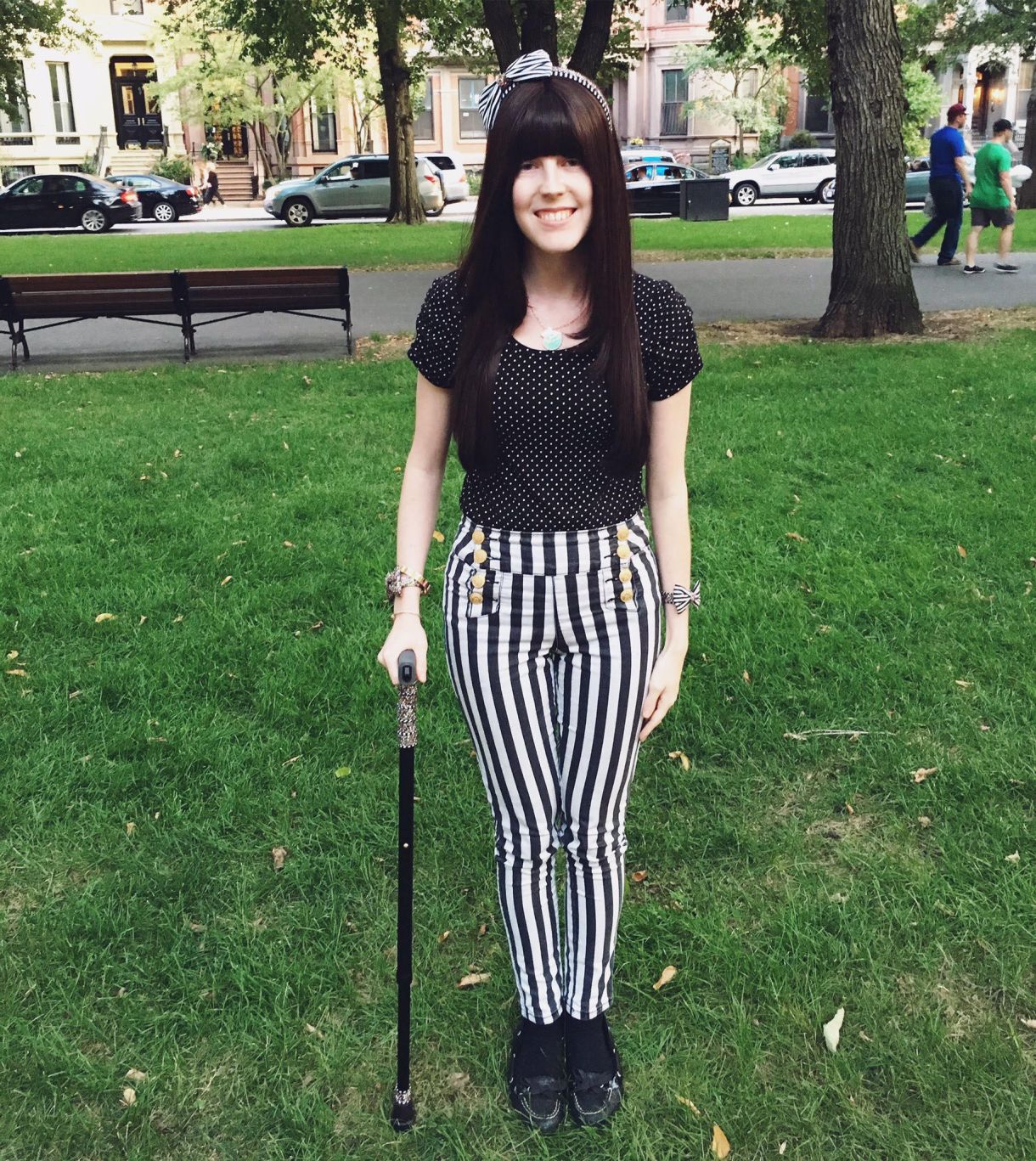
via Twitter
I’m fortunate that I live in Massachusetts, where we have state healthcare laws (that the ACA was actually based on) that currently protect me — but it’s possible that changes to the ACA or the implementation of the AHCA could remove or reduce federal funding for our state healthcare system, putting it in jeopardy. I’m also concerned about potential genetic testing requirements in the AHCA that would allow employers to essentially force employees into genetic testing. I’m afraid that if the AHCA is implemented nationally, I’ll feel trapped in Massachusetts. I do like living here, but it feels limiting to know that you literally can’t leave your state because of healthcare access, or that I’d need to have employment in another state that definitely covered both my partner and I if we were to move.
Disabled children grow up to be disabled adults, and we need continued access to healthcare throughout our lives.
Sarah / 20 / Madison, WI / Student
I have an undiagnosed health condition that causes me so much pain I have to use a wheelchair to get around, and I have pain spasms. I also have a large array of disorders including but not limited to Noonan syndrome, low muscle tone, migraines, and IBS.
My governor, Scott Walker, is in favor of high risk pools. I am currently on my dad’s health insurance but I am completely terrified of what to do when I get my own, and if/ how I will deal with being able to afford higher premiums along with large copays.
Sara / 31 / Indianapolis, IN / Student and self advocate
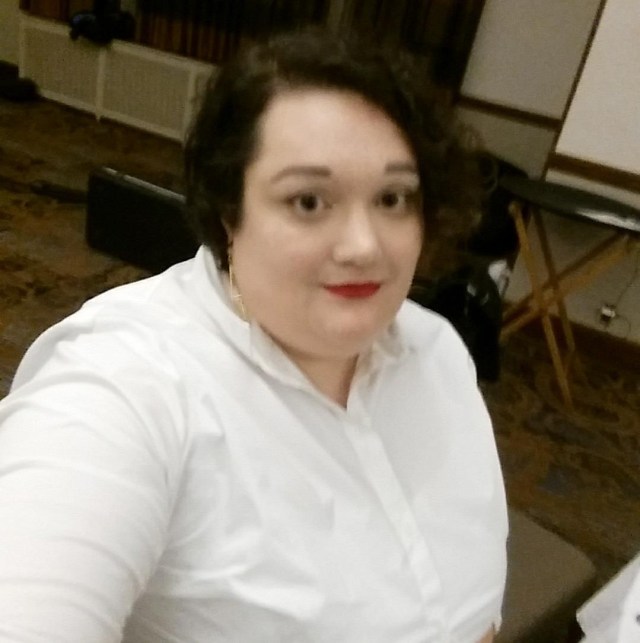
I live with a number of conditions: autism, bipolar, anxiety, asthma, an eating disorder, ADD, fibromyalgia, anemia. All of these could bar me from coverage not only from my future employers, but my spouse’s employers as well. My treatments are currently expensive with insurance. Without it, I would have no pain relief, and my mood swings, inattentiveness and suicidal ideations would return. I wouldn’t be able to finish school or manage a job, and would most likely end my own life.
I would bring out a year’s supply of medication, my mobility devices, my TENS unit, and all my current medical bills, and break every expense down to the Senate. Then they’ll have to talk, because it’ll be up to them to convince me why it’s acceptable to place my life and health at risk by voting for the AHCA.
Maggie / 35 / Rochester, NY

I am unable to work because jobs that will provide affordable health coverage and pay enough that I would be okay without SNAP and Medicaid AND would be okay with me setting my own hours and won’t mind when I’m out sick for a month or two at time because I caught a cold just don’t exist. Or perhaps they do exist but because I already live in poverty I’m just not allowed to have one.
The AHCA is a death sentence for me, someone who relies exclusively on Medicare, Medicaid, and Social Security. My only hope right now is that New York State is working on statewide single payer healthcare.
I want people to know that it isn’t nameless, faceless, person-less numbers that will be affected by this shameful legislation. It’s people you know, who keep their health information to themselves. It’s your mom, your great uncle, your second cousin you knew was having a rough time but you never imagined a car accident and subsequent hospital bills would send them hurtling towards bankruptcy. It’s people with serious medical issues that go untreated and undiagnosed because they can’t afford to see specialists even if they have some kind of “insurance” from their employer. It’s the veterans, the elderly, the disabled, and children.
“I want to live long enough to vote in the 2018 and 2020 elections.”
I would ask our Senators to explain to me in great detail why exactly access to quality health care is a right reserved only for those who have money. I would ask them how could they consider themselves a patriot of the “greatest country” in the world and literally condemn the old, the disabled, and the poor to a slow and painful death.
I want to live long enough to vote in the 2018 and 2020 elections. So far it’s looking good, but with lupus, who knows?
Catherine / 28 / Chicago, IL / Social worker
I was born with a congenital heart condition that requires monitoring every two years by a specialist; these services are not cheap with insurance, and without, I don’t know how I would manage it. I remember my parents explaining to me starting when I was in elementary school that it was necessary for me once I graduated college to always maintain health insurance with a full-time job, right after graduation (this was obviously before the ACA) because if I lost coverage for any period of time I would have trouble getting it back. I also have mental health conditions that are only manageable with therapy and medication.
“I am very worried that our health costs, which are already pretty unmanageable at times, would become completely out of control.”
I am very concerned that I could lose healthcare coverage or see a huge cost increase, which would be very difficult for me because I don’t have a huge salary, I have student debt, and my wife also has chronic health and mental health issues. I am very worried that our health costs, which are already pretty unmanageable at times, would become completely out of control. It could be very devastating to us financially and I don’t know what that would mean for our lifestyle or employment situation or our ability to maintain healthcare.
It could actually kill many people to not have access to their medications or other medical care, and it would damage the quality of life or employment ability of many others. It would be devastating for our economy to have more people unable to afford even more of their medical costs. We need to be strengthening the ACA and fixing the mistakes in it not gutting it completely with this bill.
Leah / 42 / Seattle, WA, unceded Duwamish territories / Writer, educator, and disability justice hellraiser
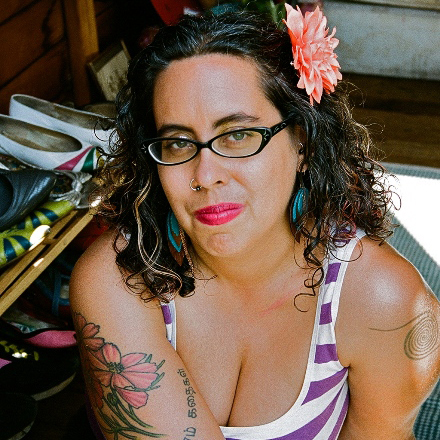
I spent almost 15 years without going to a rheumatologist or telling my primary care physician that I had fibromyalgia because I was terrified that I would get a pre existing condition (AKA a disability) on my record and be denied care. In some ways, it worked out — there wasn’t a lot Western medicine could do for fibro in the 1990s and early 2000s anyway, and I stuck to basically teaching myself to be an herbalist and a miracle affordable naturopath I found. But hiding my disability also meant a buildup of shame, feeling like when stuff was extra bad with my fibro that “this is the best it can get, there’s nothing that can be done,” which brought on a lot of fear and hopelessness. It also contributed to feeling like my disability “wasn’t real.” Like many people in the same boat, I couldn’t get accommodations I really, really needed when I was in school because they needed an official diagnosis; the access coordinator was really sympathetic when I explained what was up, but was unwilling or unable to bend the rules. It also cut me off from, um, MEDICAL CARE I DESERVED TO HAVE.
When the ACA happened, I began, 15 years into my disability, to tell PCPs that I had fibromyalgia. I began to ask for meds for pain management. I advocated for myself when my pain was at a level 9 for a month, got a referral for a rheumatologist (who found out that I also had spinal osteoarthritis and disc degeneration, which I’d probably had for years.) My friend who is a disabled physical therapist just recently told me how much the fibro patients they see benefit from getting tips on body mechanics and exercise. I was never able to access that, because I was busy lying in order to not get cut off from coverage, so that when I got pneumonia I’d still be able to see my doctor.
To those Senators: do you want to kill millions of people, or not? Also, do you know that there are countries where people have universal access to health care, including preventative care, and things are a lot better there? Do you know that disabled people deserve to live?
Dany / 25 / Madison, WI / Healthcare IT
I would lose my transgender inclusive health insurance that I just received this year (yeah top surgery!). I also have a benign brain tumor that requires many MRIs and visits to my neurologist, neurosurgeon, neuro-opthamologist, PCP, endocrinologist, et cetera to make sure that it is behaving. On top of that I have depression and anxiety that I take medication for. I cannot afford to see all of my specialists without health insurance and would not be able to function without the medication regimen I am on to control my pain and mental health.
“If it’s not good enough for them, why is it okay for their constituents?”
I would ask undecided Senators if they would accept the AHCA for themselves or their families. If it’s not good enough for them, why is it okay for their constituents?
Rose / 20 / Michigan / Student
I will more than likely take large health insurance cuts, as I’m on Medicaid. If I am cut off from my health insurance, the probability of a company taking me on is next to zero. I’ll lose coverage of the very things that keep me alive, such as my BiPAP machine.
While the Senate makes decisions about our lives, we are a community and strong and unified. This is my life that they’re toying around with, and quite literally a life or death decision.
Ellis / 20 / D.C. Area
Almost my entire family has preexisting conditions and I have five; if anything ever happens to my mom’s government-funded job, then we’re all out of insurance except for me (since I have Maryland Medical Assistance). My insurance depends more on how nice the state decides to be and what happens to that funding.
Quality healthcare is my only option to be able to actually live my life. Without a wheelchair and pain meds that work for me I’m stuck in bed most days and I can’t do anything two days in a row.
Michon / 29 / California / Accountability counselor, speaker, sensitivity editor
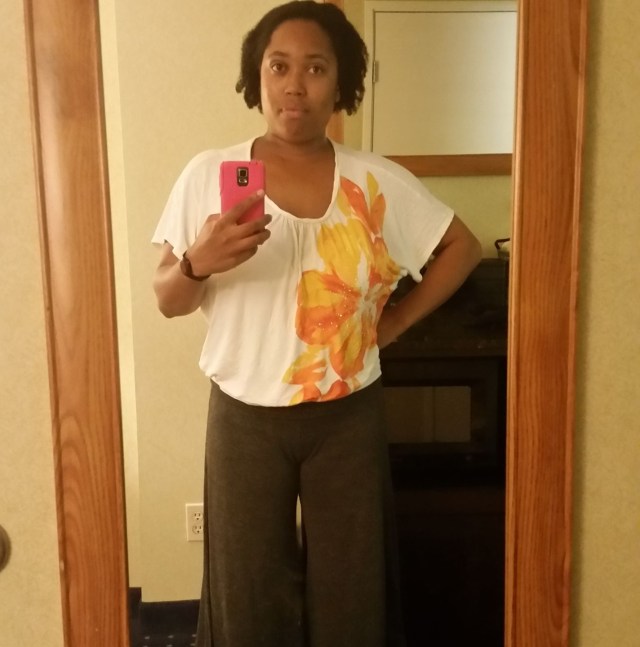
Every one of my conditions is pre-existing. I could end up being denied coverage. I should be on Medicaid but due to extenuating circumstances involving domestic violence, single parenting, homelessness and disability I was deemed noncompliant and have no idea if it can be rectified in time. The longer I’m without insurance the less I’m capable of doing, which means I will not have the spoons or time to sort all of this out before it’s too late. I have had most of my chronic pain conditions going untreated for several years now, and with these changes, I am seriously doubting that I will ever be able to have them treated the way I need. My support system is minimal, and without a huge amount of help navigating the system, I will not survive.
This is a matter of life and death. Their only job is to figure out the how of preserving a life and the rights that go along with that life. That if they do not grasp the reality and practicality of existing without those rights or the ability to advocate, they need to abstain until they have taken the experience into account. Whatever is legislated is by force, and that the cost includes so much more than mere dollars.
Liz / 35 / New York, NY / Disability advocate and founder of the Inclusive Fashion & Design Collective
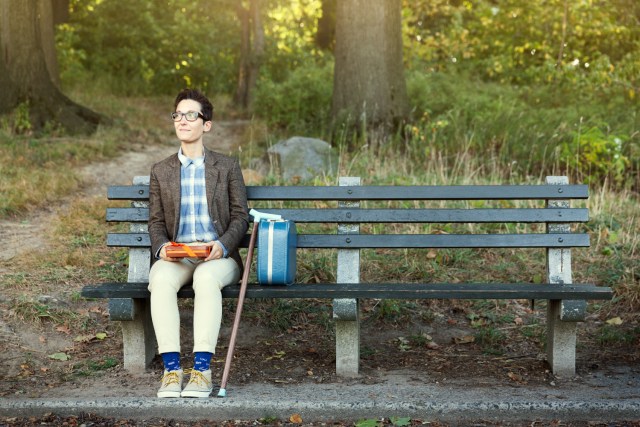
Courtesy of Hanna Agar
I am currently falling through the cracks. I made a mistake a few years ago and am not eligible for Medicare Part B. But because I am on Part A, I am not eligible for subsidies from the ACA. I am uninsured. My insurance status won’t change under the AHCA, but I will lose hope that it could have.
“My insurance status won’t change under the AHCA, but I will lose hope that it could have.”
I would express the importance of continuity of care. It took me a long time to find a medical team that I trust. This includes both mental health and physical health providers. This trust cannot be replicated and separation feels deeply traumatic to me.
April Rain / 43 / Nashville, TN / Volunteer and homeschooling mom
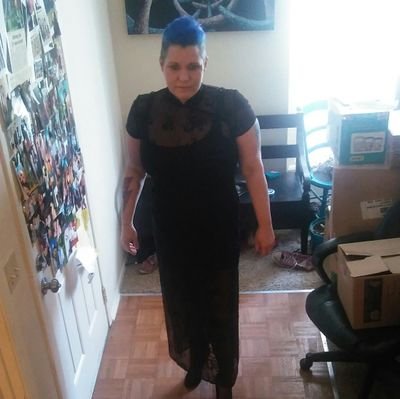
I have Parkinson’s, Hashimoto’s, PTSD, anxiety, asthma and recently had spinal surgery. I am at risk of losing my insurance and access to my medications if it passes because I’m disabled and getting ready to move to a different state.
I can’t even get to the store to get food without medicine. I cannot survive without insurance.
Jessi / 29 / Brooklyn, NY / Artist
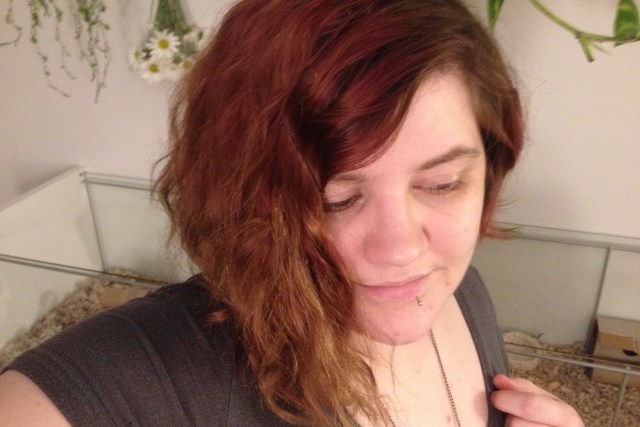
My Medicaid saves my life over and over again. It makes medication and tests and appointments that would cost tens of thousands of dollars to be accessible and affordable to me. Medicaid also allows me to access free car service to and from my doctor appointments, radiology appointments (I get a lot of MRIs, ultrasounds, and occasional CT scans every year), and so on.
Without it my quality of life would be crap — I’d no longer be able to focus on creating artwork that challenges societal norms and feeds my soul and functions as therapy, I couldn’t care for myself, I couldn’t cook or bathe or brush my teeth and hair, I couldn’t clean my home or care for my two dwarf hamsters who function as support animals, and more. I couldn’t see the few friends I retained after becoming disabled (not even in my home), I couldn’t travel to places like parks and gardens, I couldn’t read. All the things that make life worth living would be inaccessible to me because of chronic pain and fatigue and infections and so on. Medicaid is life for me. Cutting Medicaid off is cutting life off for so many of us.
Alyssa / 29 / Portland, OR / Artist & illustrator

I’ve been ill since birth, so I can’t necessarily say that everything in life will be turned upside down or that my insurance coverage, finances, employment, and lifestyle will be completely flipped on their head. But there was a lot of hope in the last several years — I was able to work to the fullest of my capabilities and afford to fund my own healthcare coverage. I’m losing a lot of that hope and comfort that I’ll be able to work, care for myself, and fund my health in a really proactive way. I’m going back to the basics of being really afraid that my experience of the healthcare system will be a lot more reactive. Lots of damage control, and lots of endless worry. I think ultimately what a lot of folks might not realize is that while it weighs a lot on the wallet, it weighs even more on self esteem and general morale. When you don’t have even the slightest peace of mind regarding your health, it tends to trickle into even the most mundane tasks in your daily living.
“I don’t think a lot of these politicians are really letting it sink in that they’re putting a dollar value on real people’s lives.”
Honestly, I think I’d just really inquire as to whether they felt my life was of value. I know that likely sounds really intense and dramatic to some, but I don’t think a lot of these politicians are really letting it sink in that they’re putting a dollar value on real people’s lives. I would like to sit down with someone face to face and lose this facade that people’s lives being at risk is a hypothetical. There’s so much “Why should I have to pay for [some hypothetical situation]” and not enough point blank: “Do I, the person standing right here telling you this vote may result in my death, deserve to die if I cannot?”
Rhys / 28 / Boston. MA / Language specialist

I would be priced out of my health insurance due to multiple preexisting conditions. I wouldn’t be able to afford to see the medical specialists who currently help me manage my chronic illness. My health care plan would become “try not to get sicker, without professional resources or support.”
I would tell undecided Senators that I would be one of the millions of people who would be priced out of my health care coverage by the AHCA, despite my commitment to my work and maintaining financial stability for me and my family. I would ask them to look me in the eyes and tell me that I don’t deserve to have affordable health care coverage, and that if they can’t do that, they know which way they should vote on the AHCA.
Corbett / 65 / Richmond, CA / Author, publisher, disability rights elder

Because of state and federal laws, as a queer woman I could not receive benefits from my partners. So now I am 65 years old, single, disabled, and poor. If I had heterosexual relationships, I would be entitled to medical and pension benefits. But I am not. My only insurance is Medicare (with an 80/20 copay). I currently cannot afford all the medications and durable medical equipment that my doctors want me to have because of the 20% copay and limited prescription medication coverage. Any increases to the cost of health care will mean that I am unable to pay for the medications and procedures that are required for me to stay alive.
“If I had heterosexual relationships, I would be entitled to medical and pension benefits. But I am not.”
These proposed changes will kill me and people I love. They will also kill people like you, Senator, love. Fight the pressure. Vote NO on the AHCA.
Karin / 40 / Midwest / Editor and blogger
I require several hours of personal care assistant services per day to get out of bed, shower, dress, and cook. With the Medicaid waiver program in my state, I can hire people of my choice to care for me, and feel safe in my home knowing they accept my sexual orientation (I identify as a lesbian) and political views.
The Medicaid Working Disabled program is my only option to pay for my assistants. No private insurance, including Obamacare, covers in-home care. Without Medicaid, my care would cost about $4000 per month, far more than my income. AHCA would cut Medicaid funding by billions, putting my care in jeopardy. The AHCA could force me to choose between my job and being able to get out of bed in the morning. It could even force me into a nursing home, which to me would be a fate worse than death.
Angel / 24 / Buffalo, NY / Writer
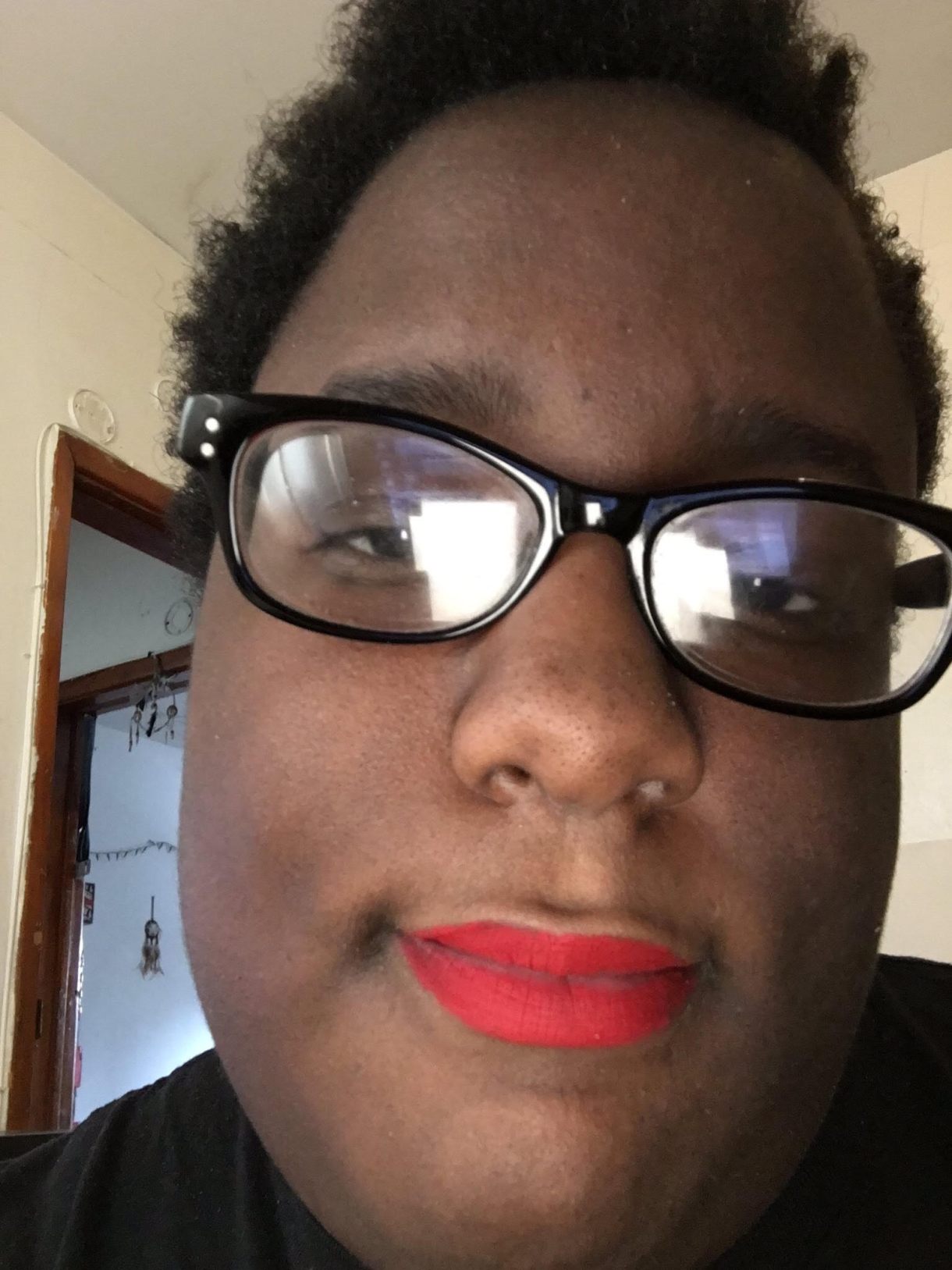
I don’t know the exact impact, but I can see myself not being able to live on my own anymore; my parent is also disabled so it would be difficult. I couldn’t get pca services, adaptive equipment (like a new wheelchair when necessary) or even the medicine I take for major depression and much more of the essential things I need to function in life. It’s scary.
“Why is it that because we don’t have the same opportunities and are more obstacles placed in our way, we have to be punished?”
Why is it that only people with money get to not worry about their health? Life is expensive and just because some of us require more expenses doesn’t mean our lives aren’t equally valuable. Money shouldn’t matter when it comes to access quality healthcare, but it does. So why is it that because we don’t have the same opportunities and there are more obstacles placed in our way, we have to be punished?
Sara / 28 / El Cerrito, CA / Nonprofit admin
I’m lucky enough to currently have insurance coverage through my workplace, but even that is not guaranteed under the AHCA. As a person with mental illness and a physical disability since birth, I have multiple preexisting conditions, and I would almost certainly be rejected from any private plan. I currently love my job, but the AHCA would force me to stay here even if that changes. I wouldn’t ever be able to start my own business or work at a job that doesn’t offer health insurance. Even if I do everything right, I can still end up without health insurance, and that thought terrifies me.
Mostly, though, I’m worried about the access of those of us who don’t have employer-sponsored health insurance. There aren’t enough full-time jobs for all of us already — so many people I know are stringing together multiple part-time jobs just to survive. Do you really want us to be uninsured?
Lark / 30 / Ypsilanti, MI / Nutritional therapist and owner of Transformative Wellness
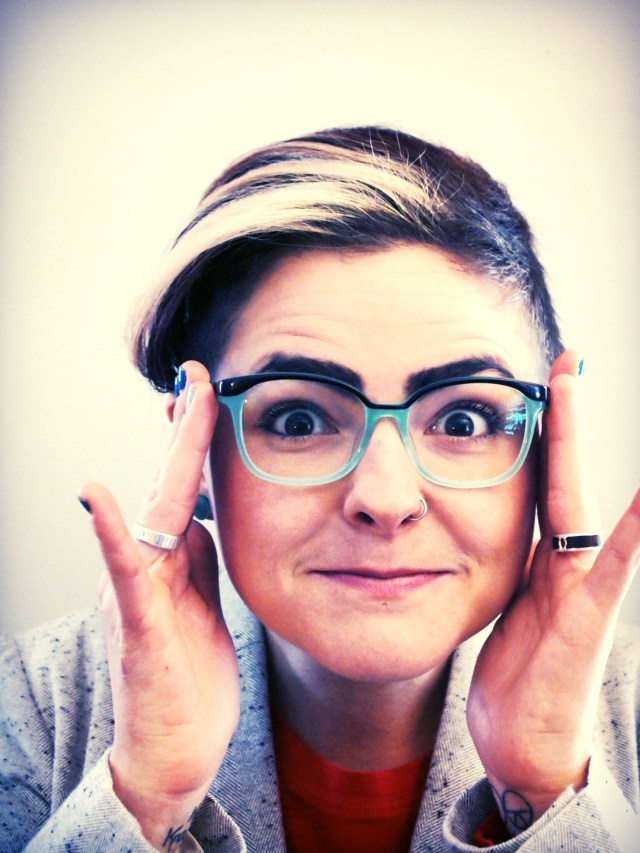
I don’t know what will happen to me under the AHCA. I’ve read about the implications, but I can’t really bring myself to imagine what will happen before the bill is in its final form. It’s too terrifying. My partner and I are both self-employed, so we get our insurance through the marketplace. We both have preexisting conditions (I have several). I honestly can’t really think about what will happen without having a panic attack.
I get so emotional when I try to talk about it that my thoughts become word salad. I’ve left a bunch of voicemails for Paul Ryan where I end up just sobbing into the phone. I guess the points I would try to make is that my partner is only alive right now because of the ACA, that healthcare is a basic human right, and that the AHCA will kill people and the blood will be on their hands.
Emily / 23 / Arlington, VA / Social worker

I have Type I diabetes and under the ACA, I already had a really difficult time affording my insulin, insulin pump, and supplies. I’m able to be a social worker because my job has really good benefits, but if the AHCA becomes law, there’s a good chance I’ll be excluded from even my work’s insurance. It would make it ridiculously hard to change jobs for fear of losing insurance coverage and the prices would shoot up as well. It’s a harsh reality that I will be priced out of my own life at this point if the AHCA gets passed and, quite frankly, I’m not done living my damn life yet.
I’ve often thought about mailing a box of ashes to Paul Ryan and other Senators as a visual representation of my death on their hands if this vote is passed. I would probably say something to a similar extent to someone debating their vote. I would ask them what they would do if they had Type I diabetes and could not afford health insurance to keep them alive, and explain how the AHCA will eventually kill me if they vote to make it law.
Shain / 29 / Albany, NY / Attorney and social justice activist
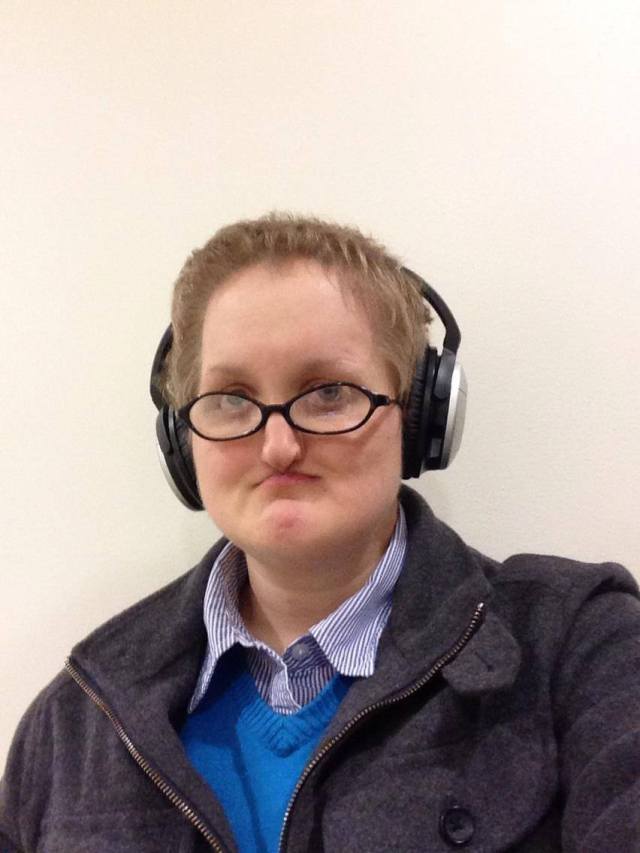
If the AHCA passes, I may have to limit where I can live to a state that provides universal healthcare or that restricts insurance companies from limiting or charging more. Alternately, it could (further) limit my career options by ensuring that I stay in jobs based on my access to healthcare coverage rather than my passion or professional growth. At worst, if I lost my job while living in a state that hasn’t yet put in place protections for people with preexisting conditions, I could find myself priced out of the insurance market, or at least out of coverage that would actually allow me to access the treatment I need. This would likely mean I’d have to move, because at very least I need my medications to (among other things) prevent seizures, maintain a functioning metabolism, and prevent severe depression.
“Healthcare is a human right, and if we believe that we can’t go on treating it as being contingent on behavior.”
Opponents of the AHCA shouldn’t fall into the divide-and-conquer mentality of holding up people whose conditions aren’t their fault while (even if only implicitly) throwing others under the bus. This gives ground to people who have no intention of compromising at the expense of people who deserve healthcare just as much as anyone else by virtue of being a person — regardless of their eating, drinking, smoking or exercise habits. Healthcare is a human right, and if we believe that we can’t go on treating it as being contingent on behavior.
Charlie / 28 / Illinois / Student
I don’t think I would be able to afford treatment any longer, let alone insurance. Right now, I can *just* afford my insurance premium and co-pays. Even still, it’s a negotiation between my wife and I in terms of which illnesses and treatment are a priority and those we can put off for a bit (which, alone, is a privilege to be able to do). I’m afraid of what will happen if we are unable to afford insurance — let alone treatment for our disabilities.
“Having a preexisting condition does not mean I am a lesser person than someone who doesn’t.”
Having a preexisting condition does not mean I am a lesser person than someone who doesn’t. It doesn’t mean that I’ve just made poor choices and deserve to pay more (or forego access altogether) just because I have “more” healthcare needs than some other people.
Alysia / 46 / New York / Novelist
I’m physically disabled, and I have MS and Type I (juvenile) diabetes. I had to stop teaching this year due to disability, and worry that if I need more home care (I already get monthly infusions by IV), Medicaid won’t be available to me. I’m worried that new problems might not be covered. My wife is stuck in her job because if we change health insurance they could refuse to cover me. We’re already paying several thousand dollars per year for meds and treatment, and expect to now pay more.
Krissy / 35 / Bay Area, CA / Artist, writer, gardener, and homeschooling parent

The lack of limits on co-pays is going to hurt me badly. I max out my insurance every year by June. With insurance I pay upwards of $1,000 out of pocket each month even after I hit my deductible. It’s worse for the first half of the year.
I am terrified that we are going to end up losing our security because my health care costs are going to go up.
I am one of the more privileged people in this discussion. I currently have the best health care I’ve ever had in my life because of my spouse’s work plan. We are doing very well — we are stable financially even though we currently spend more on health care for me than I made in a year up through when I turned 30. I am terrified that we are going to end up losing our security because my health care costs are going to go up.
Diana / 32 / Chicago, IL / Nonprofit fundraiser
Disability is not always a chronic health condition. Disability doesn’t always equate to poor health.
After dedicating my life to working in the nonprofit sector, my health converge is in question, my job is in question and I don’t know if I will be able to afford coverage offered within the “high risk pools.” A pretty horrible feeling for someone who doesn’t use my insurance any differently than the general population.
There are a lot of really compelling stories out there about people that need large amounts of care which does cost a lot of money. There are also a lot more people who will simply lose out because of a label and a narrative that equates pre-existing conditions with poor health status. I am disabled. I am healthy. You don’t need to fix me, or discriminate against me.
Michelle / 26 / Iowa / Engineer and writer
I have Bipolar II disorder and the medication I take daily is what allows me to function in society. Without my medication the likelihood of me being able to maintain my career and interpersonal relationships would drop significantly. The AHCA would allow my insurance to stop covering my psychiatrist appointments, therapy, and medications. My medications would cost about $500 a month without coverage. It’s not fiscally possible for me to maintain my health without that coverage.
At this point the only way I can think of having any effect would be to try and have the Senate see it from my point of view. What if their loved one were in my shoes?
Maggie / 19 / Philadelphia, PA / Student, intern, life enthusiast

I have to get my own health insurance in a few years when no longer covered by my parents’ and it’s terrifying to think about high premiums, copays, and deductibles. For me, insurance isn’t covering the risk that I might need medical care; I know I’ll need it to stay healthy and alive. That’s a 100% probability that I will need to shell out insane amounts of cash that I have no idea if I’ll have. The AHCA won’t directly affect me right now, but I’m worried it might in the future and about all of the people it will affect right now.
I really like living. The AHCA will possibly make that really hard for me.
For more on the AHCA’s potential impact on disabled communities, visit the hashtag #IAmAPreexistingCondition, read this breakdown from the ACLU, and watch this video from Rooted in Rights.
Pages: 1 2 3See entire article on one page



(202) 224-3121 <——- Senate switchboard number. Call today, call every day.
INDEED
I’m dying that I was mentioned in the same space as Leah.
Thank you, Carrie, for talking to so many people and putting this together. Really, thanks to everyone who spoke up here! Y’all are wonderful <3
Fuck. This struck a chord. I’m terrified.
Thank you to everyone for sharing their stories– you are all amazing. I hope we can get through this together.
Thank you all for sharing your stories.
Great article; emailing my senators now.
Here’s senator contact info by state:
https://www.dailykos.com/stories/2017/6/12/1671161/-Republican-senators-say-their-phones-aren-t-ringing-to-save-the-ACA-so-here-s-the-contact-list